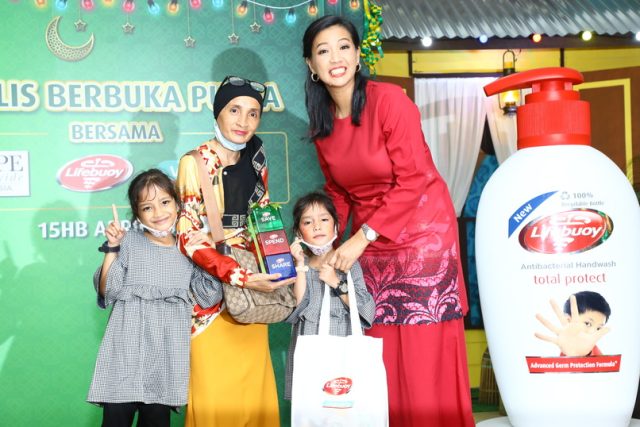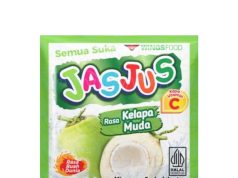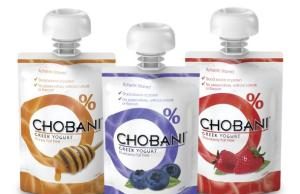Under its Bringing HOPE Changing LIVES CSR initiative, Lifebuoy hosted a special Iftar evening for underprivileged families and donated personal care products to create a healthier future for them.
Kuala Lumpur, 17 April 2023 – 40 underprivileged families in HOPE worldwide Malaysia’s beneficiary were treated to a Malay-Middle Eastern feast to break their fast last Saturday (April 15) at the Majlis Berbuka Puasa Bersama Lifebuoy, Watsons, and HOPE worldwide Malaysia event.
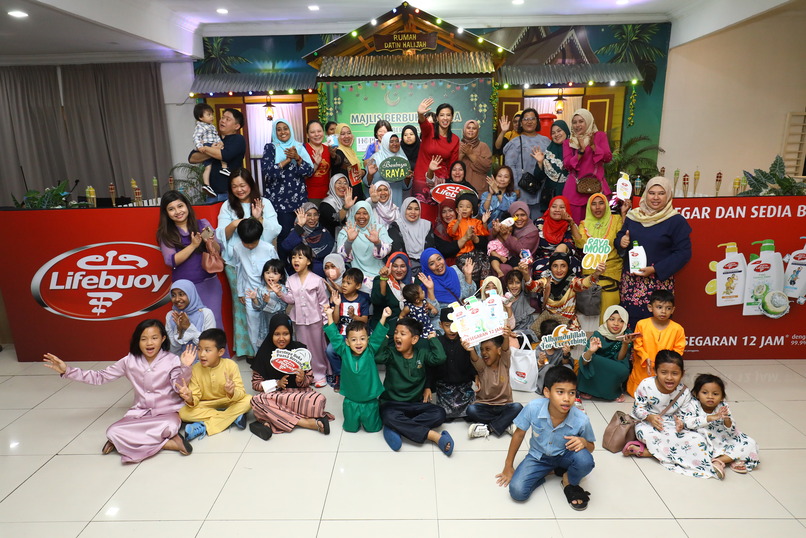
The buka puasa event is part of Lifebuoy Malaysia’s “Bringing HOPE Changing LIVES” CSR initiative to enliven their Iftar and alleviate their daily challenges so that they feel included during the Ramadan and Hari Raya festivities. Each family also received a pack of personal care provisions, which contained Lifebuoy bodywash and handwash, shampoos and healthcare products sponsored by Watsons Malaysia.
For nearly a decade, Unilever through Lifebuoy has set out to make handwashing with soap a habit for all Malaysians, keeping families one step ahead of infections. The core of its hygiene advocacy is centered around mobilizing hygiene education programs in the community and schools teaching adults and children alike about the importance of good handwashing habits. The soap brand has also continuously donated hygiene care products to bridge access to hand hygiene for underprivileged communities.
Still, learning a new habit is not an easy process. Handwashing tends to be neglected due to a low perception of health risks, forgetfulness, and inconvenient access to handwashing facilities. And when they do have access, one in two Malaysians do not wash their hands properly[i],[ii]. A 2020 study also revealed that more than half of young children do not always wash their hands when they need to – after playing outdoors, after touching pets, and after coughing or sneezingii.
Therefore, Dr Malar Santhi was invited to the event to impart the importance of hand hygiene. While demonstrating proper handwashing during the event, she stressed that it is doubly vital to protect young children who are more susceptible to infectious diseases through good hygiene practice because their immune system is still developing. The simple act of handwashing with soap is often the first barrier, and a sure way, to stop the spread of germs that cause infectious diseases.
As young children may not yet comprehend the importance of proper hand hygiene, the burden usually falls on parents to ensure diligent hygiene care in their child. However, putting food on the table and a child’s education usually take precedence for a parent, and with underprivileged families, their effort to prioritize these two components may often cause parents to overlook their child’s hygiene practices, causing them to fall sick more easily.
For all parents, falling sick means additional expenses invested into treatment and taking time away from work. But the strain on energy and income is amplified among the urban poor, especially if they have unpredictable work schedules and earn hourly wages that do not have paid time off or job protection[iii]. On the other hand, children who fall ill frequently miss schooldays more, putting them at risk of falling behind in school and holding them back from reaching their full potential[iv].
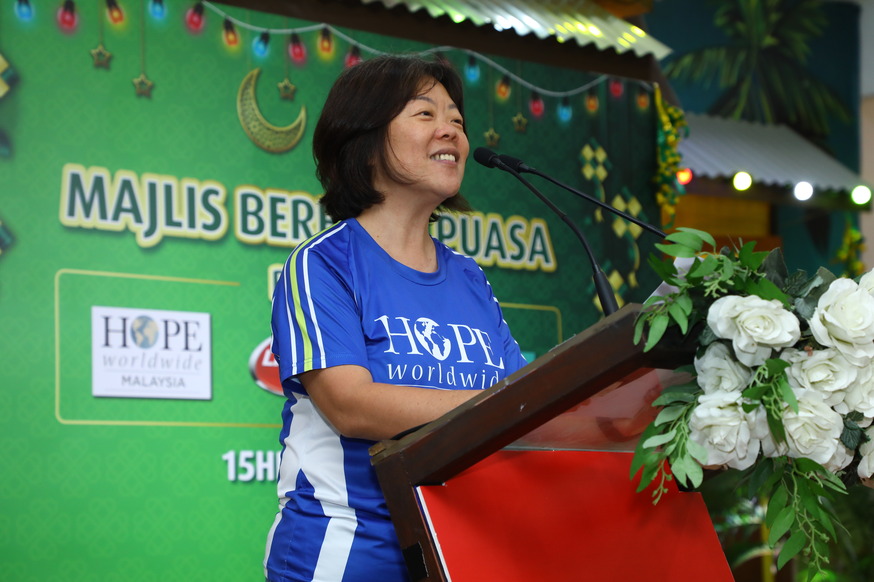
Therefore, investing in hygiene has the power to unlock huge social and economic changes beyond health. Speaking about the donation, Katy Lee, Executive Director of HOPE worldwide Malaysia shared, “It is crucial for our nation to be cautious to uphold good personal hygiene in the endemic era, likewise for the B40 families. We are grateful to Lifebuoy Malaysia for this partnership to educate and empower our beneficiaries from the B40 community, to walk with them, ensuring these families continue to uphold good personal hygiene, shielding themselves and their children from infectious diseases.”
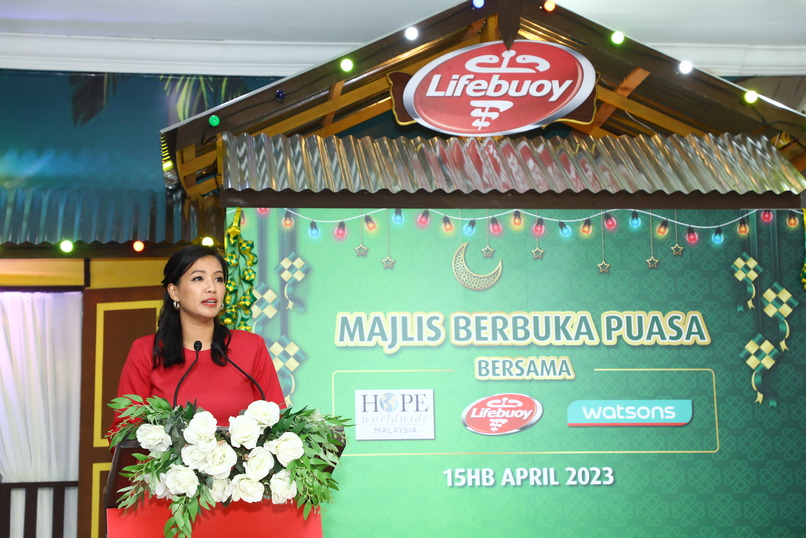
“Unilever’s heart has always been in protecting lives and livelihoods. That is why we have strived to create a germ-free community. Still, there is a gap, especially among less-privileged communities in access to basic handwashing essentials and education. So, we want to do what we can for our community to Bring HOPE and Change LIVES, and reinforce the significance of proper handwashing habits,” said Lenny Chuah, Country BU Lead of Personal Care, Malaysia, Singapore and Thailand, Head of Country, Unilever Malaysia.
On top of inspiring good hygiene habits, the children of the families also enjoyed activities that aimed to lay the groundwork for financial literacy and help them grow into financially confident adults, so that they can have better access to health essentials.
Since the commencement of Lifebuoy’s outreach programs in 2015 across Malaysia, it has reached 536,113 children aged 4 to 9 as of 2022. In 2023, Lifebuoy aims to reach another 100,000 students, with the mission to help one million develop good handwashing habits by 2025.
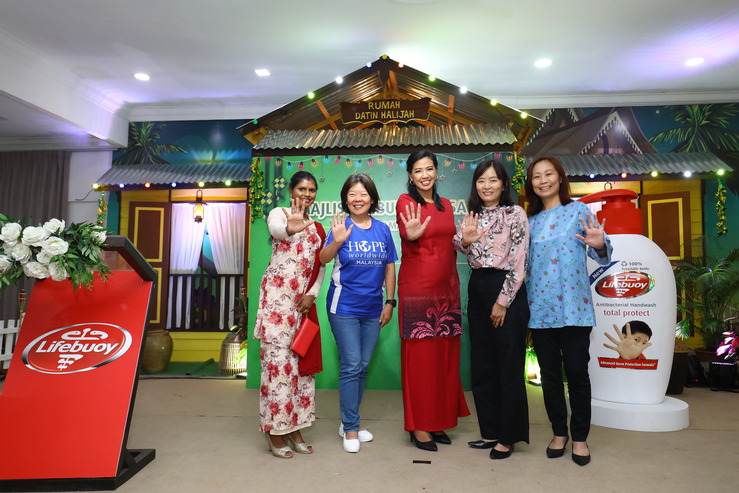
The donation of personal care provisions was also extended to over 1,100 underprivileged families across Malaysia under this initiative.
Lifebuoy’s mission is clear: to be parents’ partner in health and ensure their families and children fall ill less often. With good hygiene, families can live healthier and happier lives. Lifebuoy has spearheaded hand hygiene literacy and advocacy for over a century. They are committed to continuing forging partnerships to expand access to hand hygiene in the community to realize the brand’s vision to make hand washing commonplace and help the community stay safe, fresh, and germ-free.
[i] Ministry of Health Institute for Health Behavioral Research 2021.
[ii] Tengku Zetty Maztura Tengku Jamaluddin et al. 2020. Assessment on hand hygiene knowledge and practices among pre-school children in Klang Valley. Global Pediatric Health 7: 1-8. DOI:10.1177/2333794X20976369.
[iii] Laura Sosinsky. 2020. Child care challenges when parents’ work schedules are unpredictable and not 9-to-5. DOI:10.13140/RG.2.2.29109.91366.
[iv] Emma Garcia and Elaine Weiss. 2018. Student absenteeism: Who misses school and how missing school matters for performance. Economic policy institute, September 25. https://www.epi.org/publication/student-absenteeism-who-misses-school-and-how-missing-school-matters-for-performance/.

